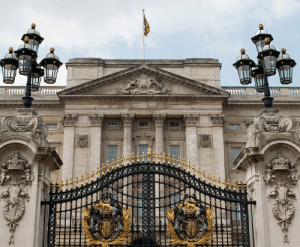
Politico’s report that Beatrix von Storch, deputy leader of Germany’s far-right Alternative for Germany (AfD), held talks at the White House this week should make alarms ring loudly on both sides of the Atlantic. This is not a routine meeting. This is not just another politician passing through Washington for a handshake photo-op. This is a member of a party with roots in neo-Nazi sympathies, openly racist rhetoric, and contempt for democracy walking through the symbolic and literal seat of American power. And it matters.
At first glance, some might dismiss this story as another entry in the endless churn of political headlines. Washington entertains foreign officials daily, and not all of them are democratic paragons. But this moment is different. It is about whom the AfD represents and what it signals when its leaders are treated with even a shred of legitimacy by one of the most influential political addresses in the world.
The AfD is not just a right-wing party. It is a party that thrives on conspiracy theories, fuels hatred against immigrants, Muslims, and Jews, and openly undermines the foundations of post-war German democracy. Its leaders have flirted with Holocaust relativism, downplayed Nazi crimes, and attacked the very pillars of the liberal order that has kept Europe stable for nearly eight decades. For Beatrix von Storch, infamous for her extreme rhetoric, including suggestions about shooting refugees at borders, to be welcomed into the White House sends a dangerous signal: that such politics are not only tolerable but worth engaging with at the highest level.
Europe has been here before, and it ended in catastrophe. Post-war Germany was deliberately built to guard against the very extremism that the AfD now embodies. Every institution, from its constitution to its political culture, was meant to be a safeguard. For decades, mainstream parties kept extremists isolated. Yet today the AfD sits in state parliaments, polls in double digits nationally, and increasingly shapes public debate in Germany. The fact that its deputy leader can now be hosted at the White House is a chilling reminder that the firewalls against fascism are crumbling not only in Europe but in the United States as well.
To understand why this matters, one has to step back and see the broader picture. The rise of the far right is not a German story, nor an American story, it is a transatlantic phenomenon. In Europe, populist nationalists are gaining ground from Italy to Hungary, from Poland to France. In the United States, Trumpism reshaped the Republican Party, normalizing extremist rhetoric, attacks on institutions, and open contempt for democratic norms. When a figure like von Storch appears in Washington, it isn’t a coincidence; it is a sign of a deeper ideological alliance, a shared playbook across borders.
What makes this especially troubling is the symbolism of the White House itself. For millions around the world, the White House stands as a beacon of democracy. It represents the fight against fascism in World War II, the post-war order, the defence of freedom. To allow a far-right extremist to sit down under its roof chips away at that symbolism. It hands the AfD a propaganda victory: proof to their supporters back home that they are no longer fringe, no longer untouchable, but players on the global stage. In their narrative, the White House visit confirms their legitimacy.
There is also the moral question: what does it mean for American democracy to offer legitimacy to those who despise it? The United States once prided itself on being the leader of the free world, a nation that championed human rights and fought tyranny. But what message is sent when its government entertains someone whose politics openly mock those ideals? The message is that power, not principle, is what matters now.
Some will argue that engagement is necessary, that ignoring the far right does not make it disappear. Perhaps. But there is a line between engagement and endorsement. There is a difference between confronting extremism and handing extremists a global platform. When the setting is the White House, the distinction collapses. It is impossible to spin the optics. For von Storch and the AfD, simply being there is victory enough.
What should terrify us is how quickly the unimaginable becomes normal. Ten years ago, the idea of AfD leaders shaking hands with American officials in Washington would have seemed absurd. Today, it passes as a news item in the week’s cycle. Tomorrow, it may be forgotten altogether. This creeping normalization is how democracies erode, not with one dramatic coup but with a thousand small concessions, each one chipping away at the taboo against extremism.
The consequences extend beyond symbolism. Europe is already trembling under the weight of far-right gains, with governments bending to their agendas or outright run by them. If the United States signals, through its actions, that it sees such forces as acceptable partners, it weakens the democratic coalition across the Atlantic. It emboldens those in Europe who want to dismantle liberal values, and it isolates those still fighting to preserve them. It whispers to extremists everywhere: your time is coming.
This is why the meeting should not be shrugged off. It demands outrage. It demands clarity from leaders in Washington who must answer why someone like von Storch was invited at all. It demands accountability from those who treat fascism as just another flavour of politics. And it demands vigilance from citizens who cannot afford complacency.
The story of the 20th century taught us the price of underestimating the far right. We are now living in a moment where that lesson is at risk of being forgotten. When the far right walks through the White House door, history itself is knocking, asking whether we will repeat the mistakes of the past.
And the answer cannot and should NOT be silence.

No comments:
Post a Comment